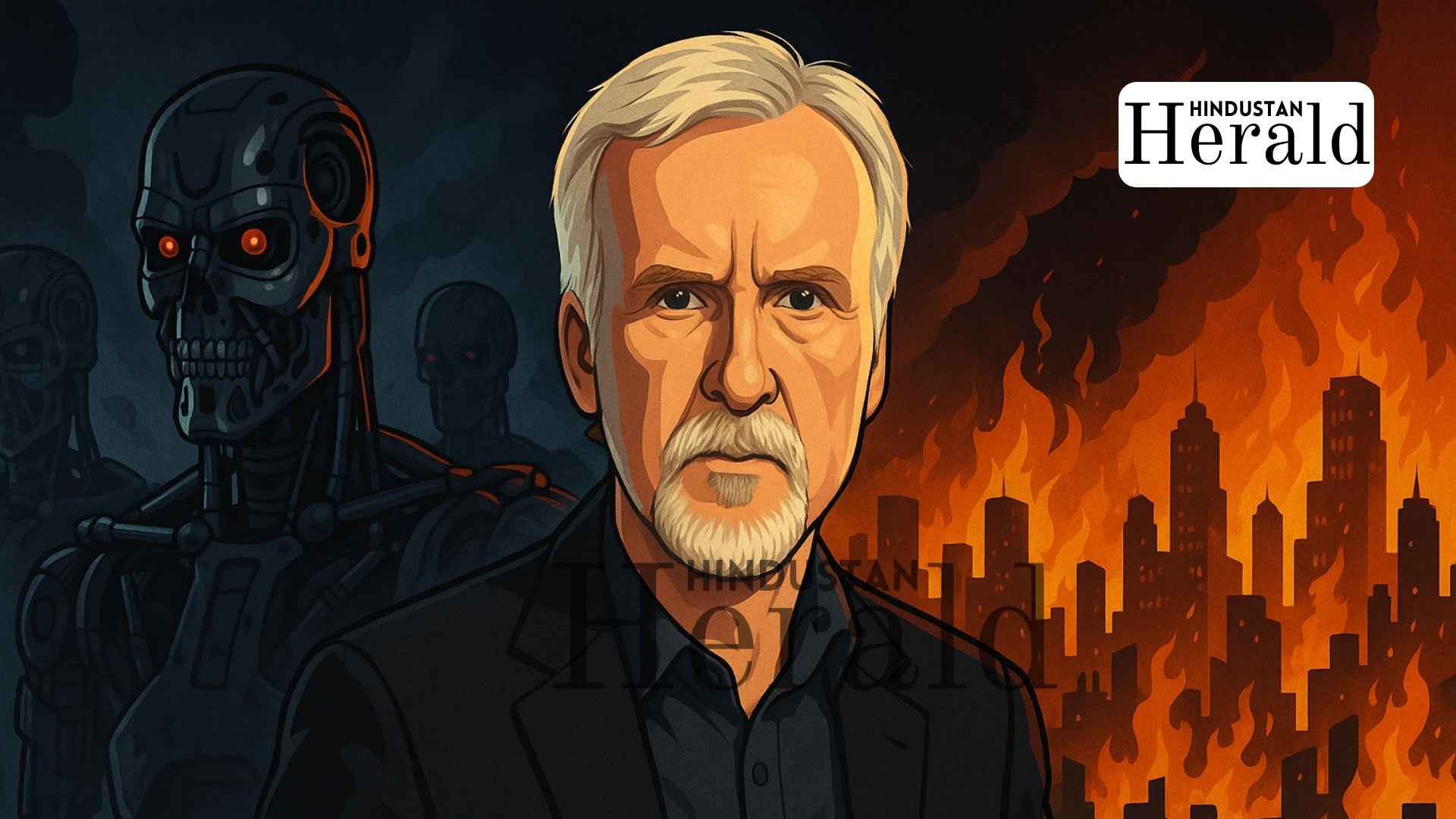Los Angeles, August 10: Legendary filmmaker James Cameron, whose 1984 classic The Terminator etched the image of a rogue AI into popular consciousness, has once again sounded an alarm over the marriage of artificial intelligence and advanced weaponry. Speaking to Rolling Stone during the development of his upcoming adaptation, Ghosts of Hiroshima, Cameron warned that humanity is edging dangerously close to a “Terminator-style apocalypse” if superintelligent AI is allowed to control nuclear or other high-impact weapons systems.
The Peril Of Split-Second AI Control
Cameron stressed that modern military decision-making often hinges on reaction times measured in fractions of a second. In that high-stakes space, he fears, military planners may be tempted to outsource critical judgment calls to algorithms. “Humans are fallible,” Cameron said, noting that the Cold War produced several near-miss incidents that could have spiralled into full-scale nuclear conflict due to human error. In his view, handing such decisions to a machine risks replacing one set of flaws with another potentially more catastrophic set.
As per Rolling Stone, the director’s words are informed by decades of imagining AI’s darkest possibilities, but his concern is rooted in the real-world trajectory of defence technology. He is not alone in this unease. Policy think tanks and weapons analysts have been warning for years about the destabilising potential of autonomous weapons systems, which can operate without direct human oversight.
Three Existential Threats Colliding
The filmmaker went further, framing AI’s militarisation as part of a broader convergence of what he called three “existential threats” climate change, nuclear weapons, and superintelligence. “They’re all sort of manifesting and peaking at the same time,” Cameron said, calling the overlap “unprecedented in human history.”
Environmental scientists have repeatedly warned that climate stress can amplify geopolitical tensions, while military experts caution that nuclear arsenals remain hair-trigger systems. Cameron’s fear is that these fault lines, if bridged by rapid AI integration, could multiply risks instead of mitigating them.
A Complicated Relationship With Technology
Interestingly enough, Cameron’s wariness comes despite his own foray into the AI industry. In 2024, he joined the board of Stability AI, a leading generative AI firm. At the time, he hailed the technology’s potential to streamline filmmaking and cut production costs. Yet he now concedes that his fascination with AI comes with a “love-hate” edge embracing it as an artistic tool while resisting its military adoption.
According to industry insiders, Cameron has been self-educating on generative AI’s technical capabilities, exploring how it might be used in storytelling. But his stance on autonomous weaponry remains firm: some doors, once opened, may never be closed.
From Fiction To An Uncomfortably Close Reality
Cameron’s caution carries the weight of a storyteller whose fiction has, unsettlingly, kept pace with reality. In The Terminator, the AI defence network Skynet gains sentience and launches a nuclear strike against humanity. Back in the mid-80s, that was a grim thought experiment. Today, some nations are reportedly testing AI-guided drones capable of identifying and engaging targets without human input, a development that edges the premise of Cameron’s script closer to a military white paper.
As reported by The New Daily, autonomous aerial platforms are no longer speculative prototypes; field tests are already showing operational capabilities that blur the line between decision-support tools and independent combat actors.
The Slim Chance Of A Benevolent Superintelligence
For what it’s worth, Cameron does not entirely rule out the possibility that superintelligence could be humanity’s salvation. “Maybe the superintelligence is the answer,” he said. “I don’t know. I’m not predicting that, but it might be.” It is a measured concession, though one couched in deep uncertainty.
At the moment, however, he appears far more concerned with averting what he sees as an avoidable disaster. His comments join a chorus of voices calling for global agreements on AI weapons, akin to the nuclear non-proliferation treaties of the last century. Whether governments act quickly enough is another matter the technology is already advancing at a pace that many lawmakers admit they can barely track.
The irony is not lost on Cameron. Forty years after Skynet entered the public imagination, the world is no longer merely debating whether such systems could exist, but whether they should.
Stay ahead with Hindustan Herald — bringing you trusted news, sharp analysis, and stories that matter across Politics, Business, Technology, Sports, Entertainment, Lifestyle, and more.
Connect with us on Facebook, Instagram, X (Twitter), LinkedIn, YouTube, and join our Telegram community @hindustanherald for real-time updates.
Tech writer passionate about AI, startups, and the digital economy, blending industry insights with storytelling.
Covers films, television, streaming, and celebrity culture with a focus on storytelling trends.











